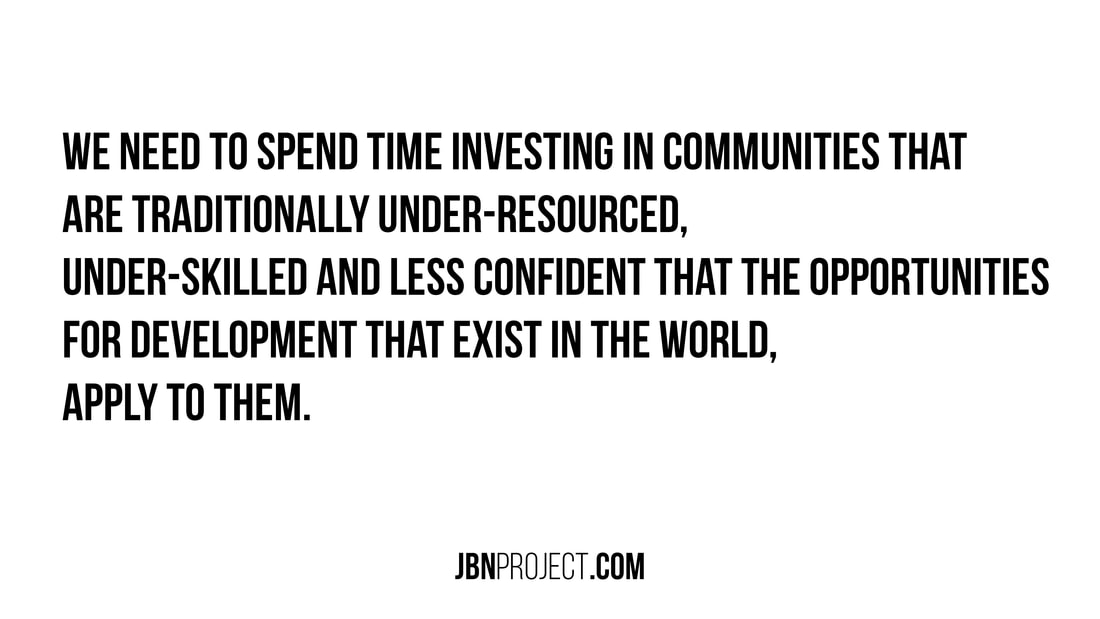|
Diversity won’t magically appear by passively saying that we want more of it.
Diversity needs to be developed. It needs to be developed by improving equality of opportunity in diverse communities. Diverse communities mean different things to different industries. Diversity can come from gender, age, country of birth, level of education, type of education, interests, socio-economic status and background. Lived experience and missed experience. Where people are from and where they live currently, what their family situation looks like and the way that they process information. Diversity is about casting a wide net and finding ways to incorporate people from all areas of the net into what you do. Unfortunately, opportunity is useless if people who are on the receiving end of this opportunity don’t recognise it. It is ineffective if there are people who believe that this opportunity is ‘not for them.’ We need to spend time investing in communities that are traditionally under-resourced, under-skilled and less confident that the opportunities for development that exist in the world, apply to them. Diversity won’t happen if we attempt to develop it in silos. You can’t simply demand that we have more female engineers, without first engaging young people in developing the relevant building blocks of knowledge, upon which they can become engineers. You cannot demand that there are more people of African descent working as lawyers without developing the skills, confidence and experience of those communities to understand, what a lawyer is, what they do, why you would want to be one, what you would need to do to become one and why it is possible for you to do that. Identifying opportunity blockers and removing them. Attempts at diversity do not start in the boardroom, they start in diverse communities. If you do not have a single board member who did not go to an independent school, then is gender or ethnic background the only diversity that you need to improve? Or can you address the gender and ethnic diversity issues by developing individuals from resource-poor environments of all ethnicities and genders? Is diversity of experience just as important? An interesting element of our community-based diversity development programs is also addressing the fact that technically, you cannot ask diversity related questions when hiring people. You cannot ask if someone is a Muslim, or Sudanese, or if they’re pregnant or if they grew up in a resource-rich or resource-poor environment. You can guess a few things by looking at someone, but it is illegal to hire or not hire someone based on their gender or ethnicity. What if you had a steady stream of diverse, work ready, skilled, willing and able candidates coming through as you looked for hires? What if you didn’t need to ask any diversity questions because you knew that the candidates came from diverse backgrounds? What if they came not looking for charity jobs in order to meet diversity hire quotas, but came ready to go. Ready to contribute in a relevant and meaningful way to the work that you do? At the Just Be Nice Project we identify links between available development opportunities and desirable industry skills. Working to build programs that improve equality of opportunity for diverse communities, supporting their development and bringing skilled, engaged individuals to industry. Diversity starts through the support of community development, it is a long-game, but one that can pay big dividends to the industries and organisations that support it. If you are looking for ways to improve diversity in your organisation. Get in touch. We'd love to hear from you. |
Just Be NiceA collection of articles relevant to pursuing the effective execution of altruism in the search for equality of opportunity. Archives
February 2020
Topics
All
|

 RSS Feed
RSS Feed